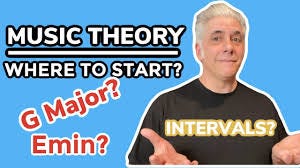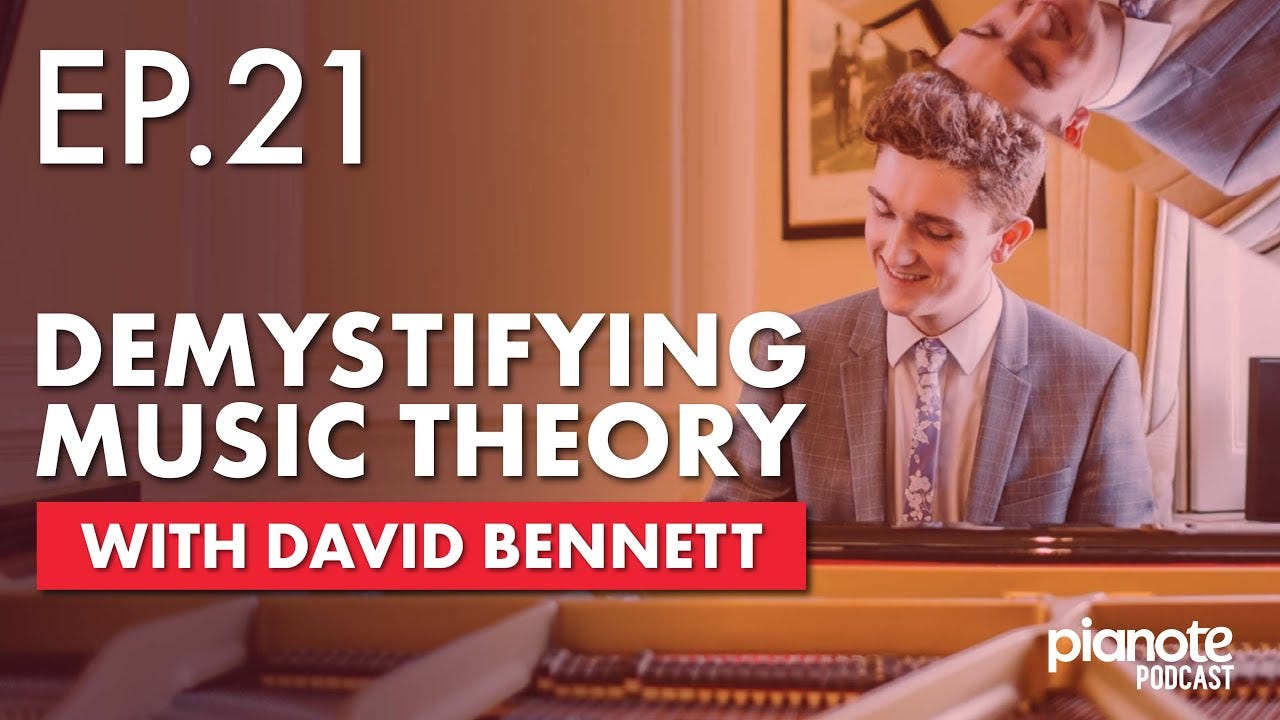My Top 5 Music Theory Helpers
I have always LOVED music theory. That may be weird, but for some reason, I am just fascinated by it and find it to be an endless ocean full of learning and ways to spark new musical ideas.
I studied music theory in high school with my piano teacher, who had me write 4-part Bach and Brahms-style choir arrangements, and I loved the challenge.
Then life happened for about 35 years and I forgot 90% of what I knew but had to pick it up again when I started learning piano to become a songwriter.
Here’s my path of the last 2-3 years in case this helps you out!
Hook Theory iPad books (you buy them as apps in the app store).
There are two of them. Volume 1 and Volume 2
Rick Beato music theory courses.
These videos are just packed with good Music Theory basics. I strongly recommend watching and taking notes to really absorb these concepts.
Music Theory Masterclass 1: Drilling the Basics is simple but also so well done.
Music Theory Masterclass 2: Chord Progressions and Harmony is a classic for me. He covers chords and harmony in a modern way. I've watched this video at least three times and have extensive notes to help me truly integrate the learning.
Music Theory Masterclass 3: The Modes in 30 Minutes is helpful but I would suggest re-watching the first two until you are really comfortable.
And if you are in a rush, you can try the Music Theory for Songwriting in 30 Minutes!
David Bennett Piano is a great channel.
He loves to talk about common chord progressions and other tips and tricks when composing. Check out David Bennett Piano for more.
Chris with Implied Music found here https://www.youtube.com/@ImpliedMusic
is wonderful to listen to for more modern applications of the Beato stuff. I love how he talks about how Phillip Glass approaches composition or gives me new perspectives on the American songbook. Here’s a video discussing My Romance
Sheet Music study: Last but not least, I love to find sheet music for a song that inspires me and study it. You can learn so much from this activity.
Here’s how I study sheet music at least today:
Print out the music you want to study or buy the songbook. Paper is great for marking up and taking notes.
Write out the chord progression best you know how. You will likely need to know the key but this might be stated or become obvious. Once you know the key, you can use Roman numerals (my preference). You can also simply use C F G A- etc. (just be consistent with your system for example A- and Am and a-minor all mean the same thing). I prefer the first A- as the clearest version of A minor.
Note which scale tones the melody uses. I’ve been using a numerical scale as taught by my piano teacher Danny Kolke in his great book Bebop by the Numbers (this spiral bound edition is great and is not just for jazz!).
Lastly, list what you’ve learned and what you are specifically inspired by. This is how you cement the learning and start being ready to apply the genius that inspired you into what you want to do. Recently I’ve been studying Elliot Smith songs because he uses such odd chord progressions with simple beautiful melodies. I learned yesterday that in many of the songs I love, he is singing the root of the chord most of the time. And here’s one last video discussing how Elliot’s chord progressions often would move up by minor thirds (where a lot of music moves in 4ths or 5ths). This tends to create a lot of forward momentum.






